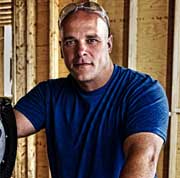Air conditioning systems play a crucial role in maintaining a cool and comfortable atmosphere in your home or office during hot weather. However, these systems can be quite costly to repair or replace when they malfunction, which is why it’s vital to take measures to prolong the life of your air conditioning system. This article will guide you through some useful tips on how to maintain and care for your air conditioning system, ensuring its longevity.
1. Change Air Filters Regularly
One of the most significant steps to extend your air conditioning system’s life is making sure that you change the air filters consistently. Air filters capture dust, dirt, and other debris that can clog the system and decrease its efficiency. When air filters are choked up, the system has to exert extra effort to circulate air, leading to faster wear and tear.
To ensure the smooth running of your air conditioning system, change the air filters at least once every three months. If you have pets or allergies, you might need to change them more frequently. This easy step can help avert expensive repairs and prolong your air conditioning system’s lifespan.
2. Keep the Outdoor Unit Clean
The outdoor unit of your air conditioning system is exposed to various elements that can cause dirt, leaves, and other debris to gather around it. If this debris remains uncleared, it can clog the coils and diminish the system’s efficiency while possibly causing the unit to overheat and malfunction.
To avoid these issues, regularly inspect the outdoor unit and remove any accumulated debris around it. Gently use a garden hose to wash away dirt and dust on the coils. This will contribute to efficient functioning and enhanced lifespan for your system.
3. Schedule Regular Maintenance
Another crucial step in prolonging your air conditioning system’s lifespan is scheduling regular maintenance checks. A qualified HVAC technician can inspect your system and perform routine maintenance tasks such as lubricating moving parts, cleaning coils, and checking refrigerant levels. Regular maintenance enables identification and fixing of minor issues before they escalate into larger, costlier problems.
Most HVAC professionals advise scheduling maintenance once per year – ideally, in the spring before you begin using the air conditioning system frequently. This can help ensure your system functions efficiently and effectively during the scorching summer months.
4. Invest in a Programmable Thermostat
One method of reducing the wear and tear on your air conditioning system is investing in a programmable thermostat. These thermostats let you set your home or office’s temperature at different times of the day, thus adjusting to your requirements without overworking the system.
For instance, program the thermostat to increase the temperature while you’re away from home or decrease it during evenings when you’re staying in. This can lessen the workload on your air conditioning system, extending its life and reducing energy expenses.
5. Address Problems Promptly
Lastly, tackling any issues with your air conditioning system swiftly is essential. If you observe strange noises, reduced airflow, or other variations in your system’s performance, don’t brush them off. Such problems could hint at more significant issues that can lead to complete system breakdowns if left unchecked.
Instead, promptly contact a qualified HVAC technician to inspect and repair your air conditioning unit. This timely intervention can prevent expensive repairs and extend the system’s lifespan.
In conclusion, proper maintenance and care are crucial for extending your air conditioning system’s lifespan and reducing costly repairs or replacements. By regularly changing air filters, keeping the outdoor unit clean, scheduling regular maintenance checks, investing in a programmable thermostat, and addressing any issues promptly, you can make sure that your air conditioning system works smoothly and efficiently for years to come. Remember that routine maintenance and preventative care save money in the long run by prolonging your system’s lifespan without resorting to costly repairs or











